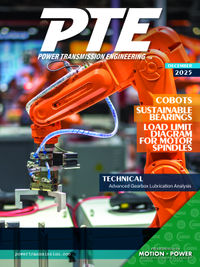Mitsubishi Electric Offers Automation Solutions to Empower Handicap Workers
In spite of advancing digitalization, the following still applies: Manual workstations are indispensable, because automation is not always profitable with small batch quantities or complex processes. Such workstations are preferred at the Martinshof Werkstatt Bremen, a sheltered workshop for a mixed workforce including people with handicaps, as they are ideally suited for integrating persons with physical or cognitive handicaps into working life.
“Poka Yoke has empowered our workers,” said Miriam Berger, in charge of production planning, Martinshof Werkstatt Bremen. “We use automation to avoid mistakes that previously occurred in the production process. Everyone must be able to work smoothly together.” 
The Japanese Poka Yoke principle, which aims at the systematic elimination of human errors, coupled with Mitsubishi Electric's “Guided Operator Solutions,” ensures high quality for Martinshof’s customers, which include well-known automakers in the region.
With some 2200 employees, Werkstatt Bremen is one of city’s largest employers as well as Germany's oldest and largest workshops for people with and without handicaps. Apart from job order and contract production in the fields of metal and woodworking, electrical assembly, filling, and packaging, Werkstatt Bremen employs 500 workers alone in the automotive business sector, and has been supplying local automakers for more than 30 years.
Handke Industrie-Technik, a long-standing supplier to Werkstatt Bremen of manual workstations, and a premium solution partner of Mitsubishi Electric, recognized the unique opportunity. Together with Mitsubishi Electric, Handke developed a Poka Yoke solution for adapted working. The prototype of the error-free workstation convinced the customer and was installed in the production line. Since May of 2018, a total of four identical zero-error workstations are in use for automotive parts production.
Integrating on-site technology and visualization




